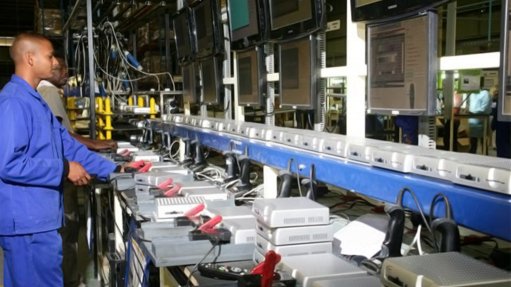
South Africa could face another delay in its already years-delayed digital migration project if government adopted the much-disputed conditional access (CA) for the set-top boxes (STBs) required to intercept digital broadcasting frequencies.
Emerging black-owned electronic manufacturing firms would be shifted to the sidelines, while consumers were likely to bear the increased cost of the CA-equipped decoder, National Association of Manufacturers in Electronic Components (Namec) president Keith Thabo said on Monday.
The addition of CA would hike the price of STBs by between $9 and $12 each – adding more than R450-million at the lower end to government’s R4-billion bill for five-million subsidised decoders.
Government planned to subsidise up to 66% of the price of a digital terrestrial television (DTT) STB and up to 77% of the price of direct-to-home STBs for the country’s poorest households.
The increased costs would have to be borne by government and consumers.
This excluded the post-production management and additional costs of CA, such as software royalties, management services, certification and call centre operations, added Namec deputy secretary-general Tony Booysen.
Pay television (TV) operators generally used CA as a mechanism to monetise the use of content and suspend broadcasting services in response to an unpaid subscription bill.
The control system was not a suitable option for South Africa, particularly for free-to-air (FTA) television services.
“Unless the [State broadcaster] South African Broadcasting Corporation (SABC) intends to become a pay TV operator [or switch off services owing to unpaid TV licences], what is the point?” he questioned.
“We are just migrating; we do not need any fancy technology,” Thabo noted.
Further, the selection of CA vendors would also delay the deployment of the digital switchover by one to two years, he said, as due process would be required in the issue of a tender.
The installation of CA would not protect local manufacturers, but serve to entrench already dominant incumbents, as only those with established relationships with CA vendors and accreditation would benefit.
Foreign companies have become the largest manufacturers of STBs with CA, Booysen pointed out, adding that the software would not stop grey imports, prevent STB migration to neighbouring countries or cross-border spillage.
FTA channels could be picked up even using CA – the better solution would be a networking locking solution similar to that employed by mobile networks at minimum costs.
Government should also rather increase the duty on STB imports and ensure STBs sold in the local market through retailers were compliant and endorsed by South African Bureau of Standards under the SANS 862 specification, as well as the Independent Communications Authority of South Africa and the National Regulator of Compulsory Specifications, Namec suggested.
“The CA issue should be put aside so we can get on with DTT. [And firms] wanting a CA [installed in their STBs] should do so at their own cost,” said Namec treasury general Sicelo Mtsali.